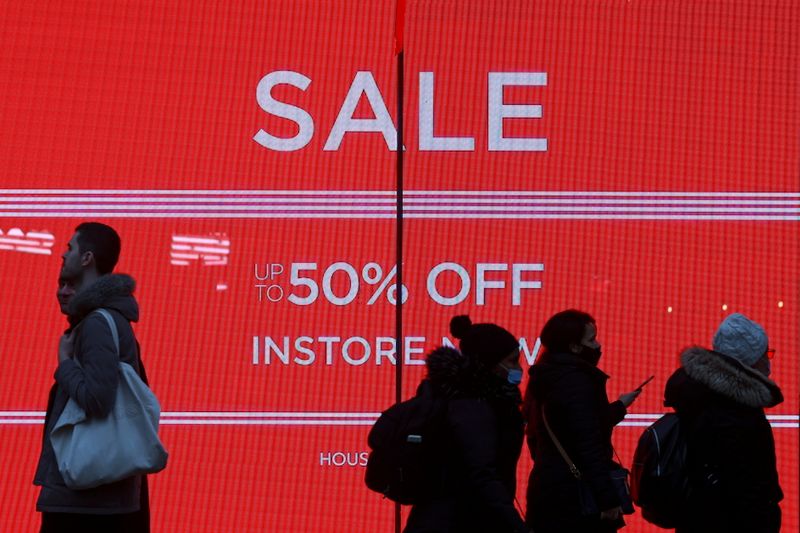U.S. retail sector: How does this sell-off compare to 2020?

Investing.com -- U.S. retail stocks fell sharply during a broader market sell-off triggered by new tariff announcements, with Citi analysts comparing the downturn against the steep declines seen at the start of the COVID-19 pandemic in 2020.
According to Citi’s analysis, stocks have so far witnessed roughly half the level of price decline post-tariff announcements compared to the pandemic market sell-off. The Wall Street firm’s findings suggest that the current market downturn is less severe than the one from three years ago.
The bank compared the sector’s performance since the S&P 500’s peak on February 19, 2025, against the stock performance from February 19, 2020, to March 23, 2020.
The data shows that stocks in Citi’s coverage declined by an average of 35% during the 2020 period, compared to a 16% decline since February 19, 2025. The S&P 500 itself saw a 34% drop in 2020, versus an 18% fall in the recent sell-off.
“While the magnitude of the current sell-off is less, there are also other noticeable differences in the performance of our coverage this time around,” analysts said in a note.
Certain sectors, such as auto parts retail and closeouts, which saw significant declines in 2020, have experienced lesser impacts this time, with some even posting low single-digit increases.
On the other hand, shares in pet food retailer Chewy (NYSE:CHWY) were up 10% during the pandemic sell-off but are down 16% since the February peak. RH (NYSE:RH), meanwhile, is the worst performer in both periods.
“We have seen roughly half the level of price decline so far in the market post-tariff announcements that we saw in the pandemic market sell-off,” the analysts added.
3rd party Ad. Not an offer or recommendation by Investing.com. See disclosure here or remove ads.In a second chart, Citi focused on the changes in forward year price-to-earnings (P/E) valuations during both periods. The S&P’s forward-year P/E valuation has decreased by 26% since the February 19, 2025, peak, a less dramatic fall than the 34% drop during the 2020 pandemic selloff.
The average valuations in Citi’s coverage have seen a 44% decline in the pandemic compared to a 15% decline in the current situation. Notably, several companies, including AutoZone (NYSE:AZO), O’Reilly Automotive Inc (NASDAQ:ORLY), and BJ’s Wholesale Club (NYSE:BJ), have witnessed valuation jumps since the 2025 peak.
The report also highlighted that all stocks in Citi’s coverage are trading at a premium compared to the lowest forward-year P/E ratios reached in 2020.
RH, Boot Barn (NYSE:BOOT), and Williams-Sonoma (NYSE:WSM) are trading at the highest premiums relative to their 2020 troughs, while Best Buy ’s (NYSE:BBY) valuation is approximately 15% above its 2020 low.
BBY: A Bull or Bear Market Play?Don't miss out on the next big opportunity! Stay ahead of the curve with ProPicks – 6 model portfolios fueled by AI stock picks with a stellar performance this year..In 2024 alone, ProPicks' AI identified 2 stocks that surged over 150%, 4 additional stocks that leaped over 30%, and 3 more that climbed over 25%. That's an impressive track record.With portfolios tailored for Dow stocks, S&P stocks, Tech Stocks, and Mid Cap stocks, you can explore various wealth-building strategies.So if BBY is on your watchlist, it could be very wise to know whether or not it made the ProPicks lists.
Unlock ProPicks now